I’m volunteering to help the Australian Sex Party. Yep, this election Saturday, I’ll be at my local polling place, handing out ‘How to Vote’ cards and answering questions.
One question I’ve already gotten is “What on earth are you helping them for?” I’ll confess, it does go deeper than the desire for a bright yellow ASP t-shirt, or to make fundy heads go asplody.
When I first heard about the Australian Sex Party, I thought, “Ha. Funny.” Then when I saw their policies, I thought, “Wait a minute. I agree with most of this.” Here are my favourite ASP policies.
To overturn mandatory ISP filtering of the Internet and return Internet censorship to parents and individuals.
The Internet filter is Labor’s idea, and it’s a shame they’re clinging to it. Even the Liberal Party has disavowed it.
To bring about the development of a national sex education curriculum as a first step in preventing the sexualisation of children.
Yes, yes, and yes. This is what prevents pregnancies (and abortions): better information and availability of contraception.
To create total equal rights in all areas of the law including same sex marriage.
Neither of the major parties has had the courage to come out in favour of this. When someone who’s an otherwise progressive thinker refuses to condone gay marriage, you know what that tells me? They’re willing to let prejudice prevail, for no good reason. And that they’re probably beholden to some religious ideology.
To enact national pregnancy termination laws along the same lines as divorce law — which allow for legal, no-fault and guilt-free processes for women seeking termination.
It’s a medical matter, not a political matter.
Overturn restrictions on aid to overseas family planning organisations that reference abortion.
Why is this even happening?
Convene a Royal Commission into child sex abuse in the nation’s religious institutions.
This should have already been done.
An Ethics course along the lines of the current NSW trial, developed by the St James Ethics Centre, to be incorporated into the national curriculum.
I love the idea of getting young people to examine secular ethics and ethical issues. Much more relevant than the bronze-age tribalism they’re currently getting.
Supports stem cell research, including embryonic stem cell research, and maintains it is a vital medical issue, not a religious issue.
Automatic yes.
The public education system should be secular in nature and not provide for any religious instruction whatsoever.
‘Religious instruction’ is an oxymoron.
Ending the tax exempt status for religions.
Cessation of tax-exempt status on all but the charitable work of religious institutions.
Religions don’t pay their fair share, and we end up paying their tax burden. Let them pay taxes like all other businesses.
To be fair, there are planks in the platform that I find uncomfortable, unappealing, or complicated.
To bring about equal numbers of women in the Parliament through enabling the Federal Discrimination Act to have jurisdiction extending to political parties.
This is worded funny. You can’t force equal numbers.
Decriminalisation, not legalisation, of purchase, possession and consumption of all drugs for personal use, such quantity to be defined as an amount equal or less than 14 day’s supply for one person.
I can’t stand drugs and don’t use them (including alcohol), but I see the value of moving enforcement to the supply side. Dealing would remain illegal.
Minors (under the age of 16) may obtain an abortion without the consent of a parent/guardian.
Touchy, but actually that’s the way it is now.
I understand the reasoning behind these positions, but I’m not sure I’m entirely comfortable with them. Even so, these aren’t deal-breakers for me. No one’s going to agree with every party position, and this will be more pronounced when the party takes a strong stand on issues, as does the ASP.
Now if you’ll excuse me, I’m off to a volunteer info meeting, or as they call it, ‘Slave Training‘. You have your choice of two meetings; they describe one as ‘vanilla’. I’m going to the other one! (Pictures soon.)
Americans: Don’t you wish you could vote for a Sex Party? Oh, I forgot: Republicans. Let me reword that. Don’t you wish you could vote for an unrepressed non-self-hating sex party?
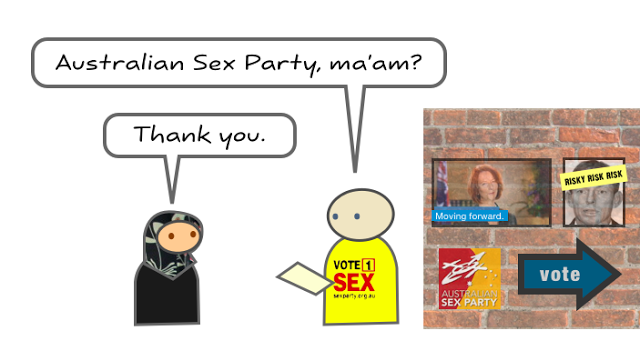

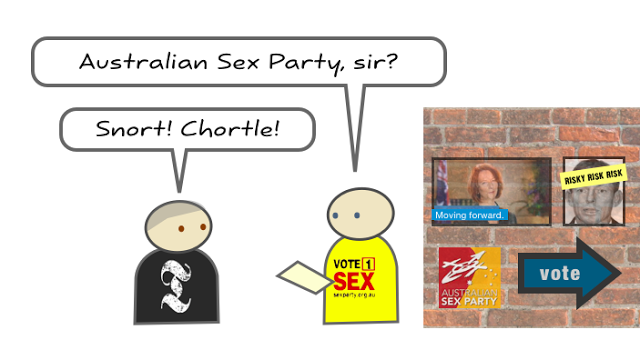
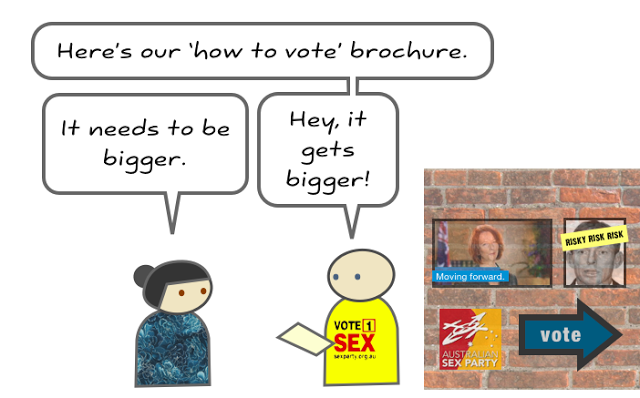
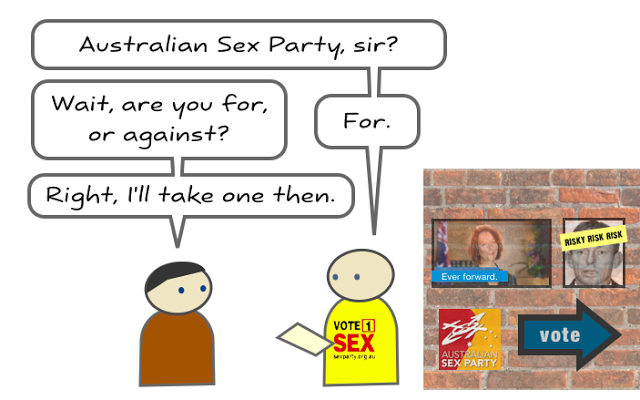
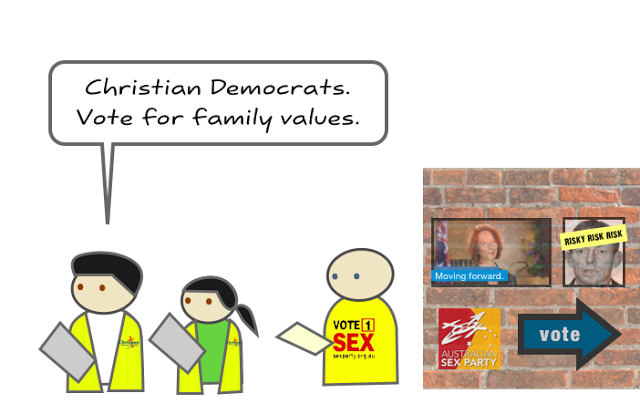
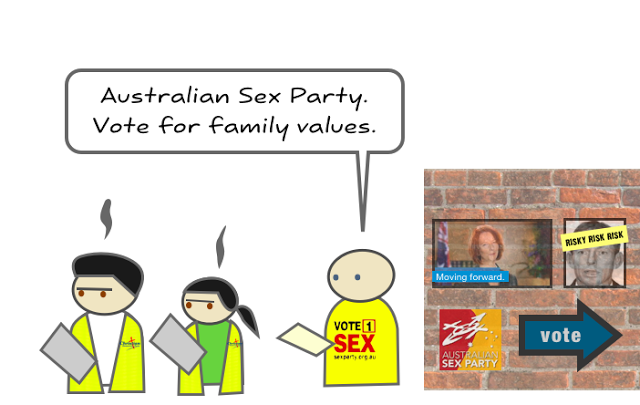
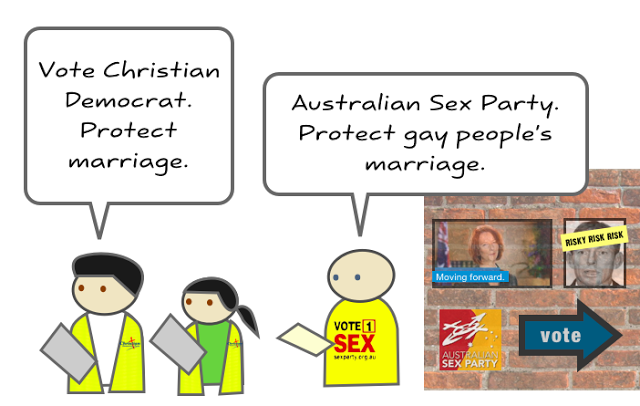
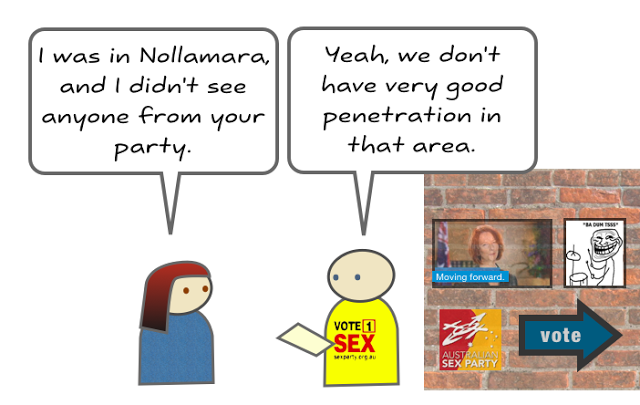
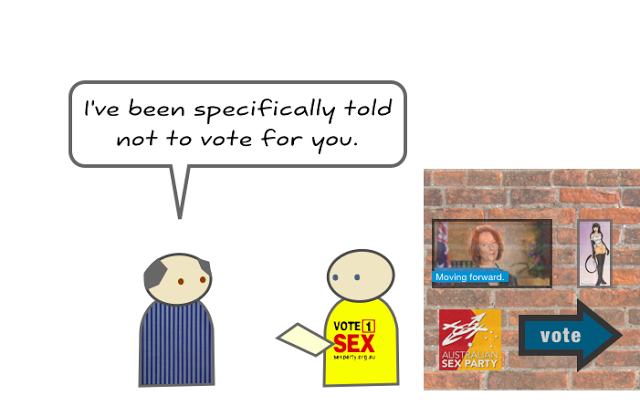
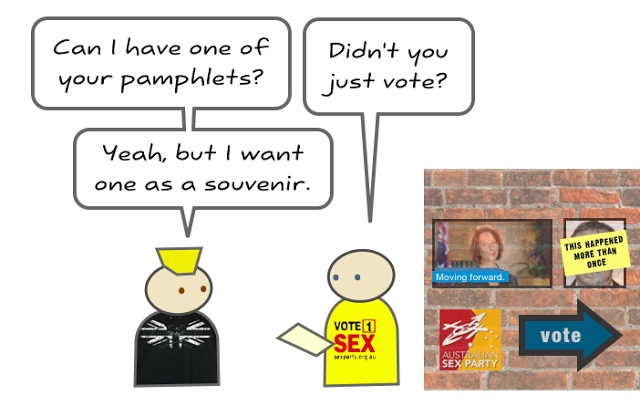
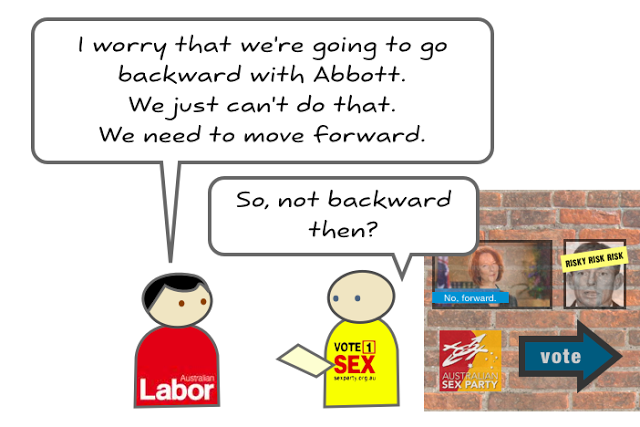
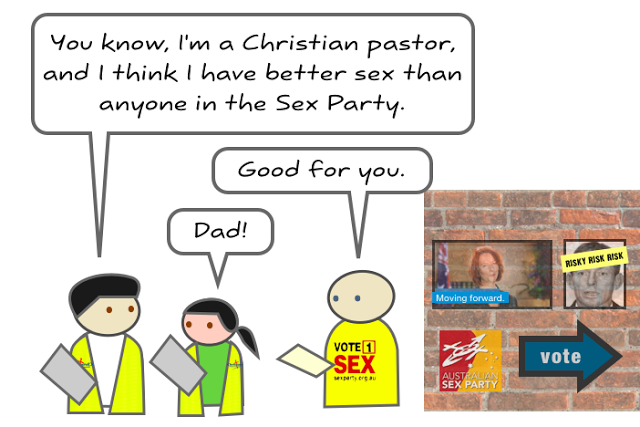
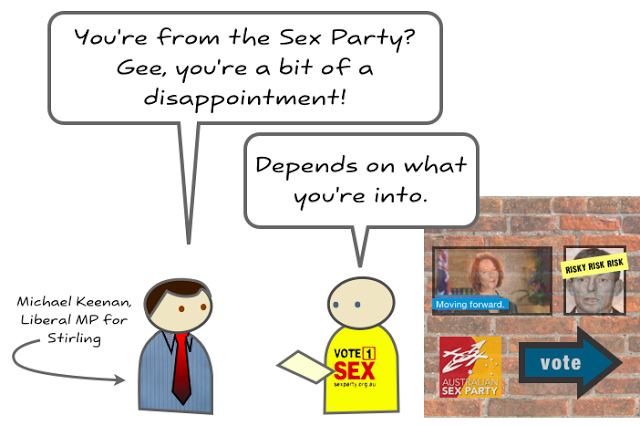
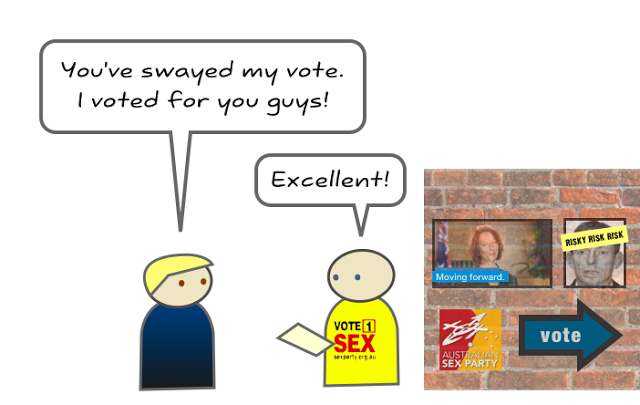
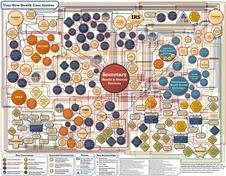

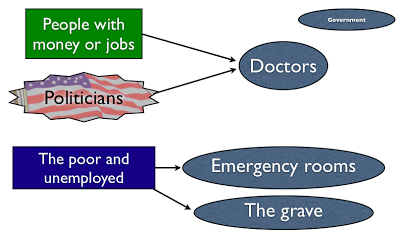
Recent Comments